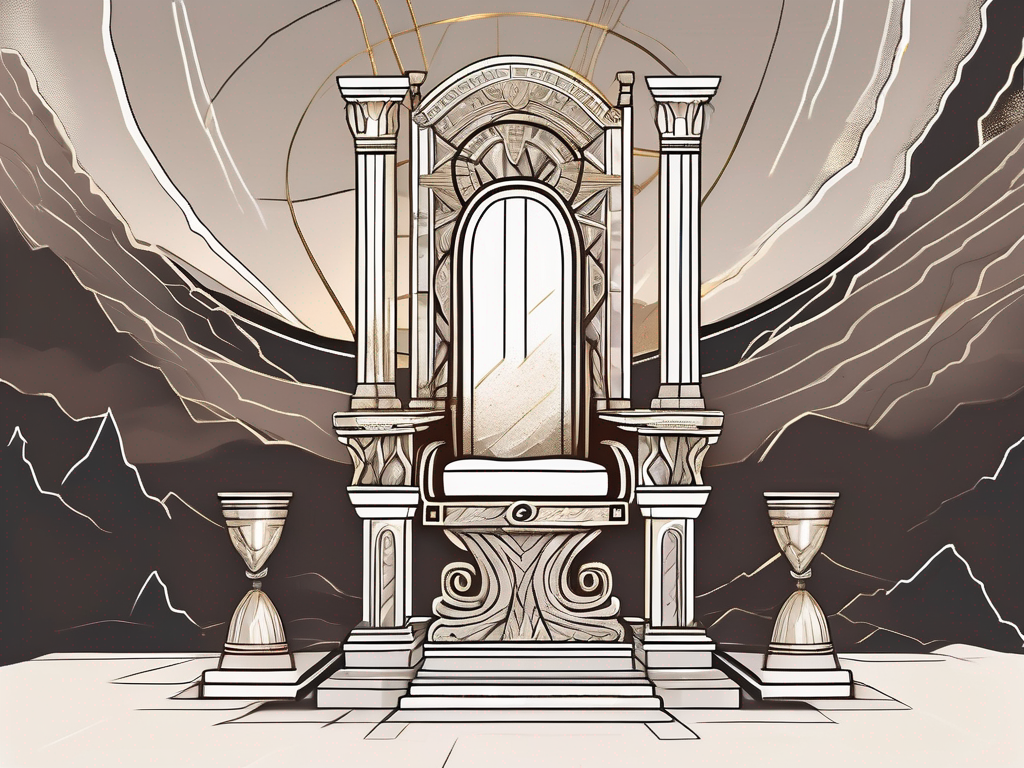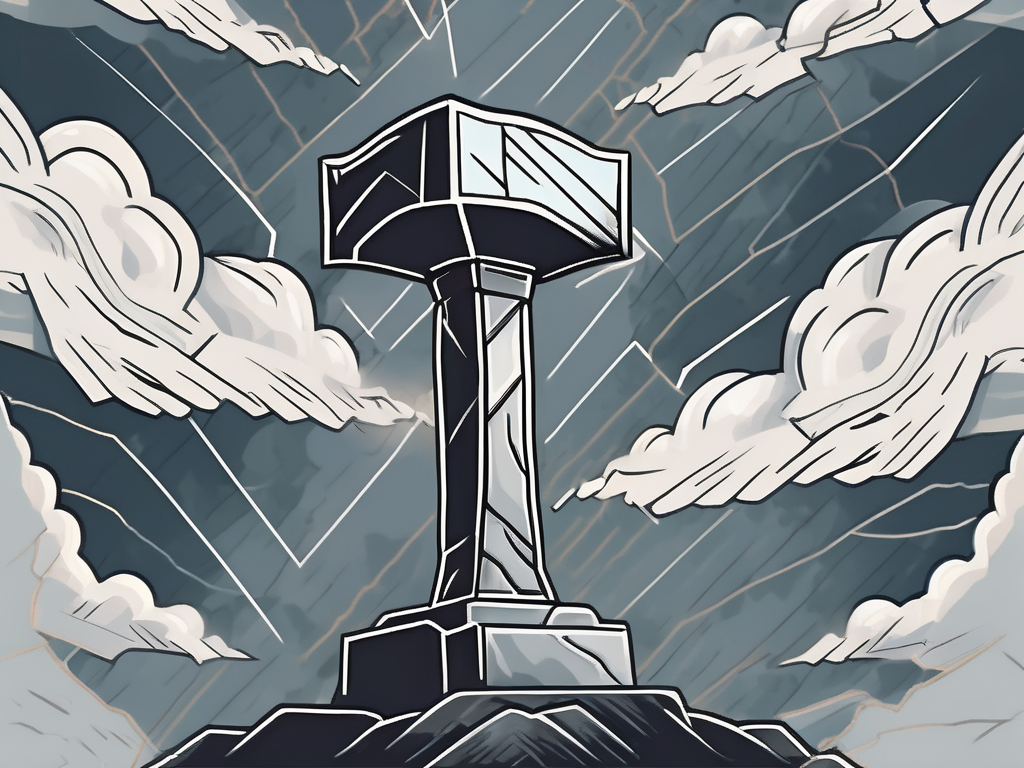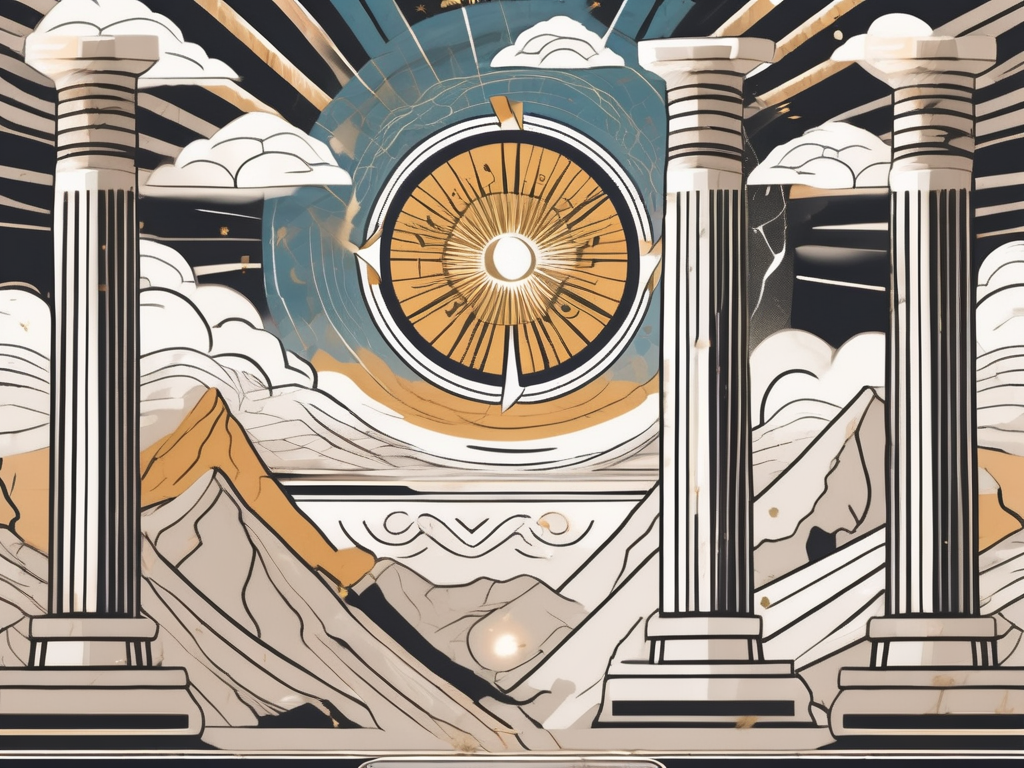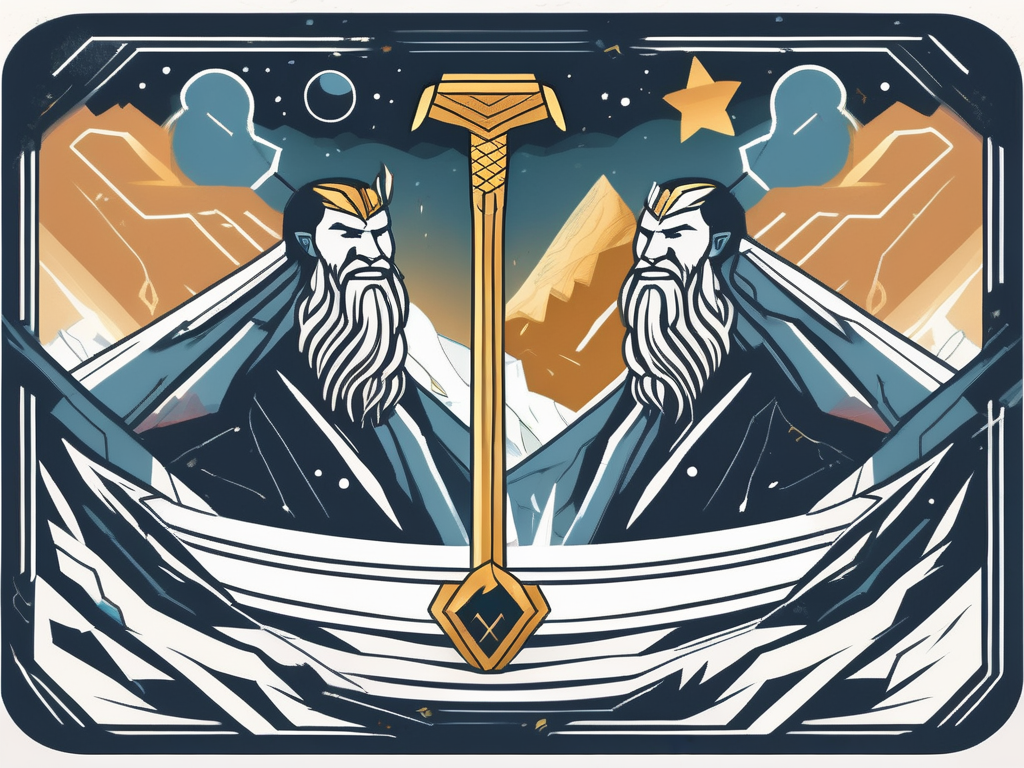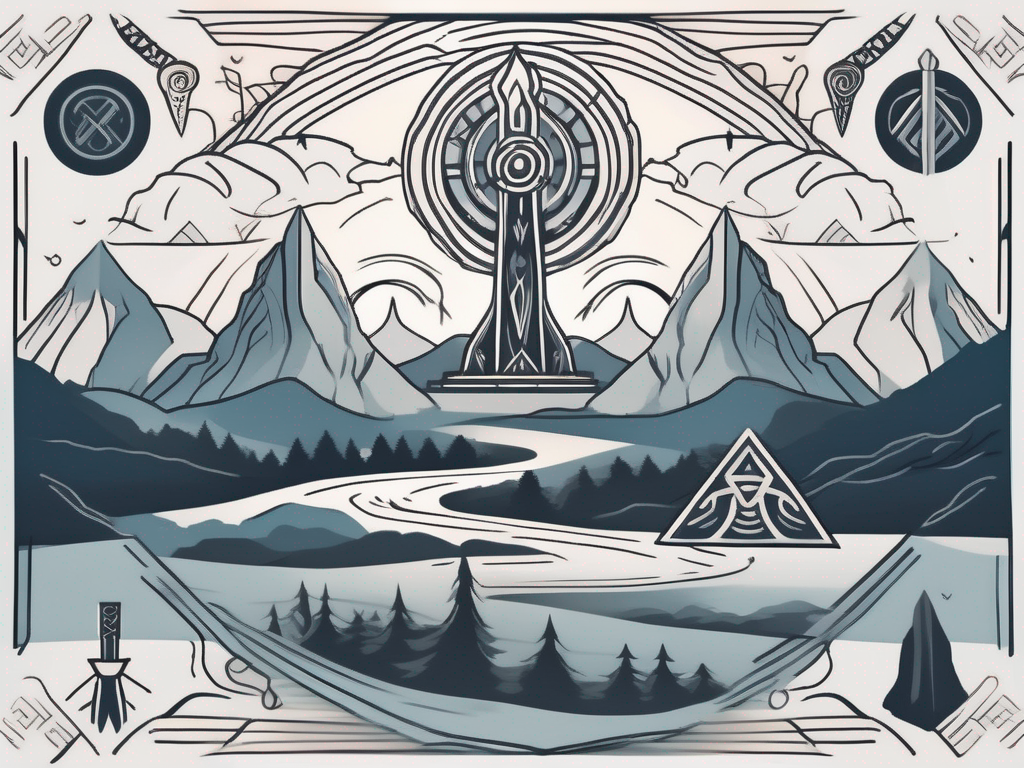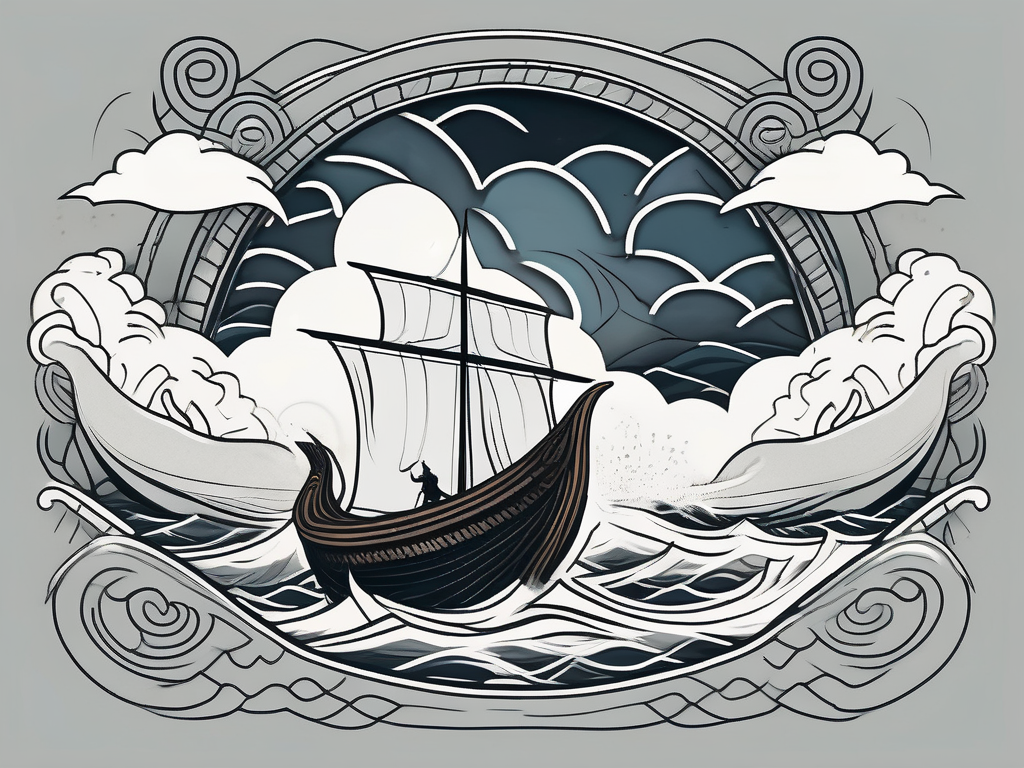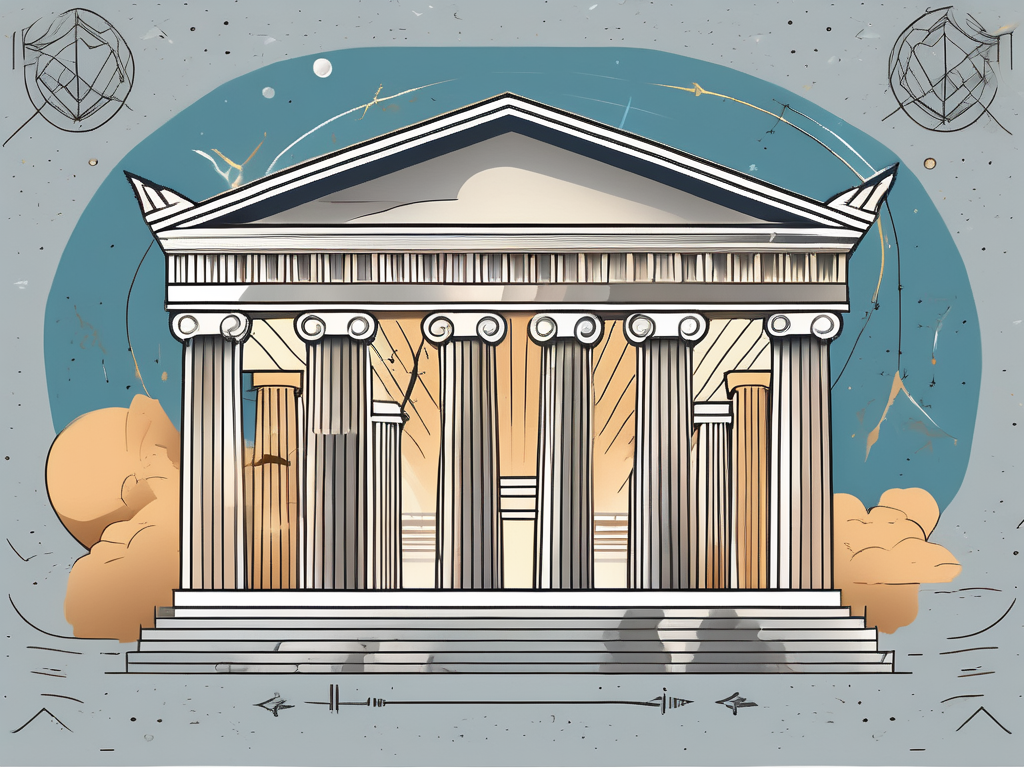In Greek mythology, the gods held immense power and influence over various aspects of the world. One of the most captivating figures in this ancient pantheon is Cronos, the god of time. Cronos was a force to be reckoned with, his dominance and control extending over all realms. Let’s delve deeper into the fascinating world of Cronos and uncover the mythical power he possessed.
Understanding Cronos: The Greek God of Time
Cronos was a complex character, often depicted as a god with a human-like appearance but donning a regal demeanor. As the personification of time, he ruled over both the past and the future, ensuring the cyclical nature of existence. His story intertwines with numerous other gods, making him a pivotal figure in Greek mythology.
But who was Cronos really? Let’s delve deeper into the fascinating world of Greek mythology to uncover the intricacies of this enigmatic deity.
Cronos in Greek Mythology: An Overview
In Greek mythology, Cronos was one of the Titans, a group of powerful divine beings preceding the Olympian gods. He was the youngest son of Uranus (the sky) and Gaia (the earth) and had brothers and sisters who also belonged to the Titans. This family dynamic played a crucial role in shaping the course of Cronos’ life and his eventual dominance.
Legend has it that Uranus, fearing the power of his children, imprisoned them within Gaia’s womb. However, Gaia, burdened by this confinement, devised a plan to free her offspring. She fashioned a sickle from the strongest metal and presented it to Cronos, urging him to overthrow his father and liberate his siblings.
Cronos, driven by ambition and a desire for power, took up the sickle and ambushed Uranus, severing his father’s genitals and casting them into the sea. This act marked the beginning of Cronos’ reign and the rise of the Titans.
The Symbolism and Powers of Cronos
Cronos’ association with time represented more than mere chronology. It symbolized the eternal cycle of birth, growth, decay, and rebirth. With his scythe, he could cut through the fabric of time, dictating the occurrence of events in the mortal and divine realms. His power over time made him an essential figure in the intricate workings of the cosmos.
But Cronos’ control over time went beyond its cyclical nature. It also brought with it the ability to bestow blessings or inflict curses. Some believed that his influence could alter human lives and even determine the fate of entire civilizations. This omnipotent authority made him a deity to be both revered and feared.
Furthermore, Cronos’ scythe held a deeper significance. It represented the inevitability of death and the fleeting nature of existence. Just as his scythe could cut through time, so too could it sever the thread of life, reminding mortals of their mortality and the importance of cherishing each moment.
Cronos’ Role in the Pantheon of Greek Gods
As a Titan, Cronos occupied a notable position within the hierarchy of Greek gods. He held sway over the Titans, who in turn reigned over their respective dominions. Cronos’ reign over time was supremely significant, as it determined the order and sequence of events for all gods and mortals.
However, Cronos’ power and authority were not without challenges. His own children, fearing the same fate that befell Uranus, conspired against him. Led by Zeus, Cronos’ youngest son, the Olympian gods waged a war against the Titans, known as the Titanomachy. In this epic battle, Zeus emerged victorious, banishing Cronos and the other Titans to the depths of Tartarus, a dark and desolate abyss.
Despite his defeat, Cronos’ legacy endured. His role as the god of time continued to shape the cosmos, ensuring the harmonious progression of events and the eternal cycle of life.
The Reign of Cronos: A Time of Dominance
During his rule, Cronos experienced various pivotal moments that showcased the extent of his dominance and shaped the course of Greek mythology.
As the mighty Cronos ascended to power, the heavens trembled with anticipation. The overthrow of his father, Uranus, marked a turning point in the celestial hierarchy. Uranus, fearing the immense strength of his children, sought to prevent them from ascending to power. But Cronos, fueled by a burning desire for freedom and justice, took it upon himself to lead his siblings in a rebellion that would forever alter the course of history.
Armed with a scythe gifted by Gaia, the Earth herself, Cronos stood tall and resolute. The clash between father and son was cataclysmic, as the heavens bore witness to the epic battle. With a mighty swing of his scythe, Cronos struck Uranus down, shattering the chains that bound the Titans and solidifying his grip on power. The cosmos reverberated with the echoes of his victory, a testament to his indomitable will and unwavering determination.
Following his ascension, Cronos ushered in an era of unparalleled splendor and prosperity known as the Golden Age. It was a time when the world basked in the radiance of his benevolent rule, and all beings, mortal and divine, flourished under his watchful gaze. The land teemed with abundance, and the air was filled with the harmonious melodies of contentment.
Cronos, the embodiment of balance and order, ensured that every aspect of existence thrived in perfect harmony. The gods themselves reveled in his reign, for his dominion extended far beyond mortal realms. Under his wise guidance, humankind lived in perfect alignment with the divine, their lives intertwined with the celestial tapestry.
Yet, amidst the golden glow of Cronos’ rule, a dark cloud loomed on the horizon. A prophecy, whispered by the fates themselves, foretold his downfall at the hands of one of his own children. The weight of this prophecy bore heavily upon Cronos’ heart, filling him with a consuming fear and paranoia.
Driven by this intense dread, Cronos embarked on a treacherous path, making fateful decisions that would shape the course of his reign. His once benevolent rule gave way to a tumultuous period, where suspicion and mistrust tainted the air. The once harmonious relationship between gods and mortals began to fray, as Cronos sought to prevent the prophecy from coming true.
As the years passed, the cracks in Cronos’ dominion grew wider, and the seeds of rebellion took root. The gods whispered in hushed tones, plotting their own rise to power, while mortals yearned for a new era, free from the shackles of fear and uncertainty.
And so, the reign of Cronos, a time of dominance and grandeur, stood on the precipice of change. The stage was set for a new chapter in Greek mythology, where the balance of power would shift, and the destiny of the cosmos would be forever altered.
The Downfall of Cronos: The Rise of Zeus
The prophecy that had plagued Cronos soon became a reality with the birth of Zeus, one of his children. Zeus, with the help of his mother, Rhea, managed to escape Cronos’ clutches and grew in strength and power to challenge his father.
The Birth of Zeus: Cronos’ Ultimate Downfall
Rhea, desperate to save Zeus from a similar fate as his other siblings, cunningly devised a plan. She concealed Zeus from Cronos, presenting him with a stone wrapped in swaddling clothes instead. Cronos, deceived by Rhea’s ruse, swallowed the stone, unaware of the impending threat that Zeus represented.
Zeus’ survival allowed him to grow into a formidable figure, one who would eventually lead a rebellion against Cronos and the Titans.
The Titanomachy: The War of the Gods
Zeus, along with his siblings and other gods who opposed Cronos’ rule, initiated a fierce battle known as the Titanomachy. This epic clash was a struggle for dominance and control over the cosmos.
The Titanomachy lasted for ten years, with Zeus gradually gaining the upper hand, thanks to his strategic alliances and the help of powerful beings. Eventually, Zeus and his allies emerged victorious, banishing Cronos and the other defeated Titans to Tartarus, the deepest region of the underworld.
Cronos’ Banishment: The End of an Era
Cronos’ banishment marked the end of his dominant reign, and the dawn of a new era led by Zeus and the Olympian gods. Once a figure of unparalleled power, Cronos now existed in exile, forever separated from the realm he once controlled.
The Legacy of Cronos in Greek Mythology
The influence of Cronos extended far beyond his physical presence. His legacy and the impact of his actions can be witnessed throughout Greek mythology.
Cronos’ Influence on Later Greek Myths and Legends
Many stories and myths in Greece continued to reference Cronos and the events that unfolded during his rule. His banishment and the rise of Zeus formed a crucial foundation for the subsequent tales of the Olympian gods and their interactions with mortals.
Cronos’ complex character and the intricacies of his relationships with other gods provided a rich tapestry for future storytellers to explore.
The Cultural Significance of Cronos in Ancient Greece
Cronos’ mythological significance reverberated throughout ancient Greek society. His dominion over time played a vital role in shaping their perception of the cyclical nature of life and the inevitability of change. This understanding influenced various aspects of Greek culture, including art, literature, and philosophy.
Cronos’ Impact on Modern Interpretations of Greek Mythology
The legacy of Cronos transcends time, manifesting in modern interpretations of Greek mythology. His complex character, marked by his rise to power and subsequent downfall, continues to captivate audiences and inspire creative works.
Through the lens of modern storytelling mediums, such as novels, films, and television series, Cronos’ mythical power and dominance find new life, engaging audiences worldwide.
In conclusion, the mythical power of Cronos, the Greek god of time, reverberates throughout Greek mythology and beyond. From his complex relationships with other gods to his reign over time itself, Cronos’ dominance and influence continue to captivate and inspire. As we explore his story, we unveil the intricate tapestry of Greek mythology, delving into a realm of timeless tales and ancient wisdom.
